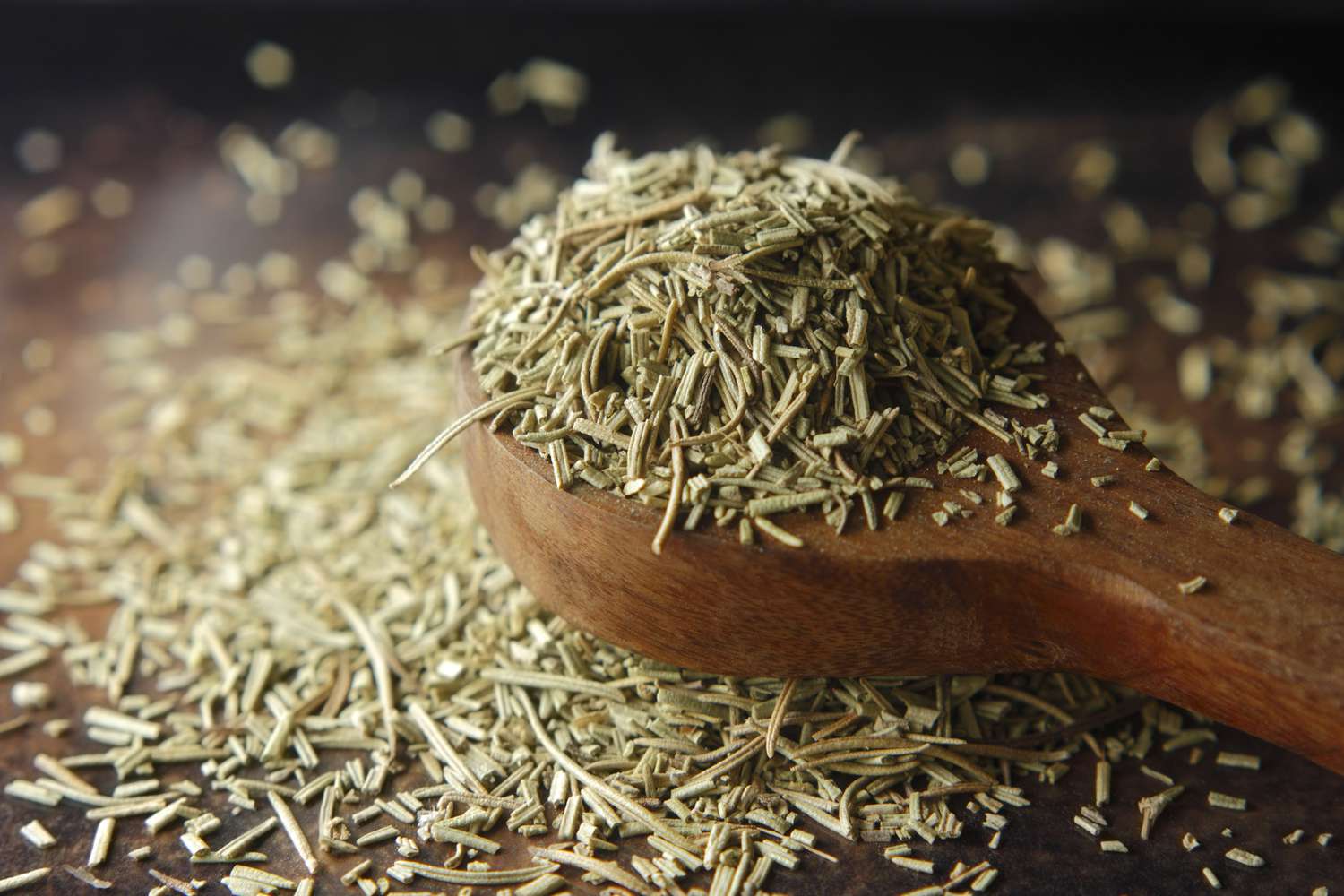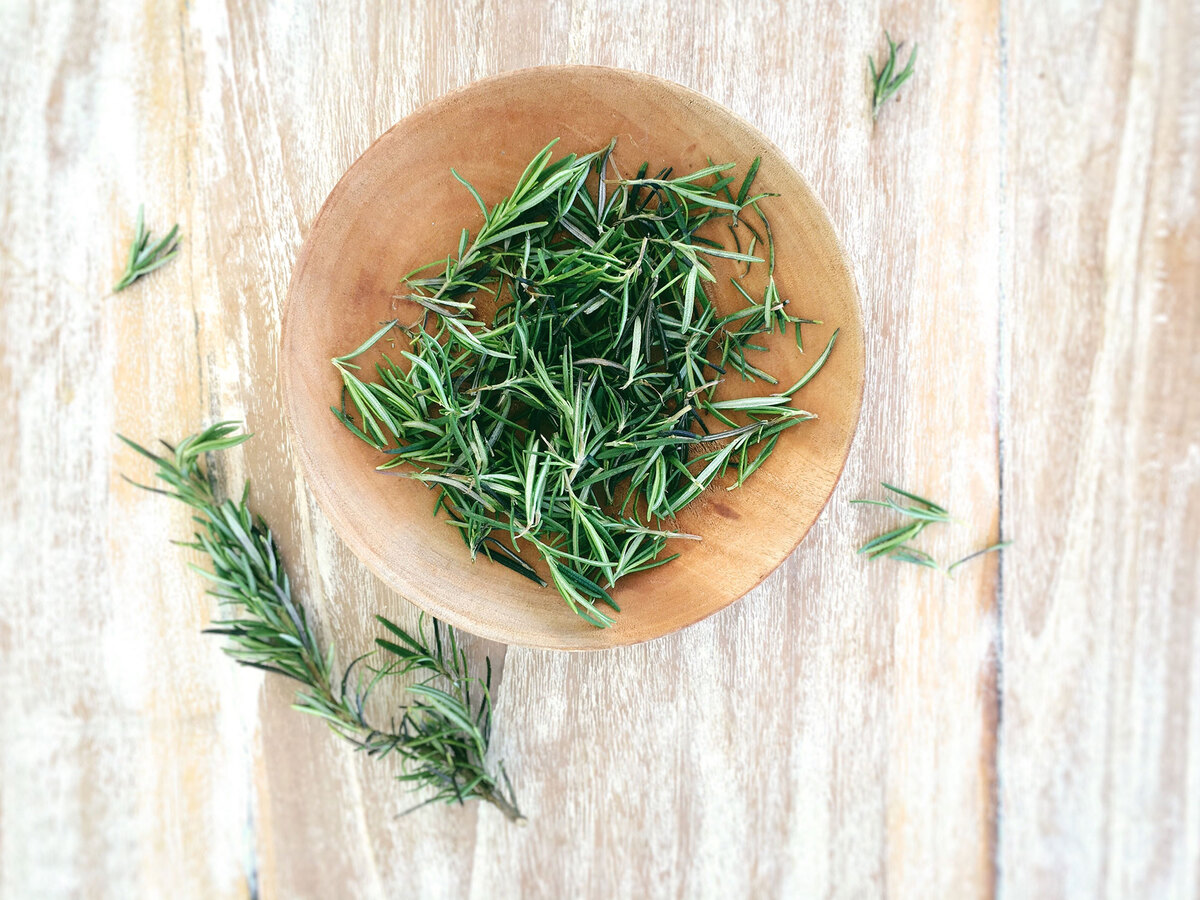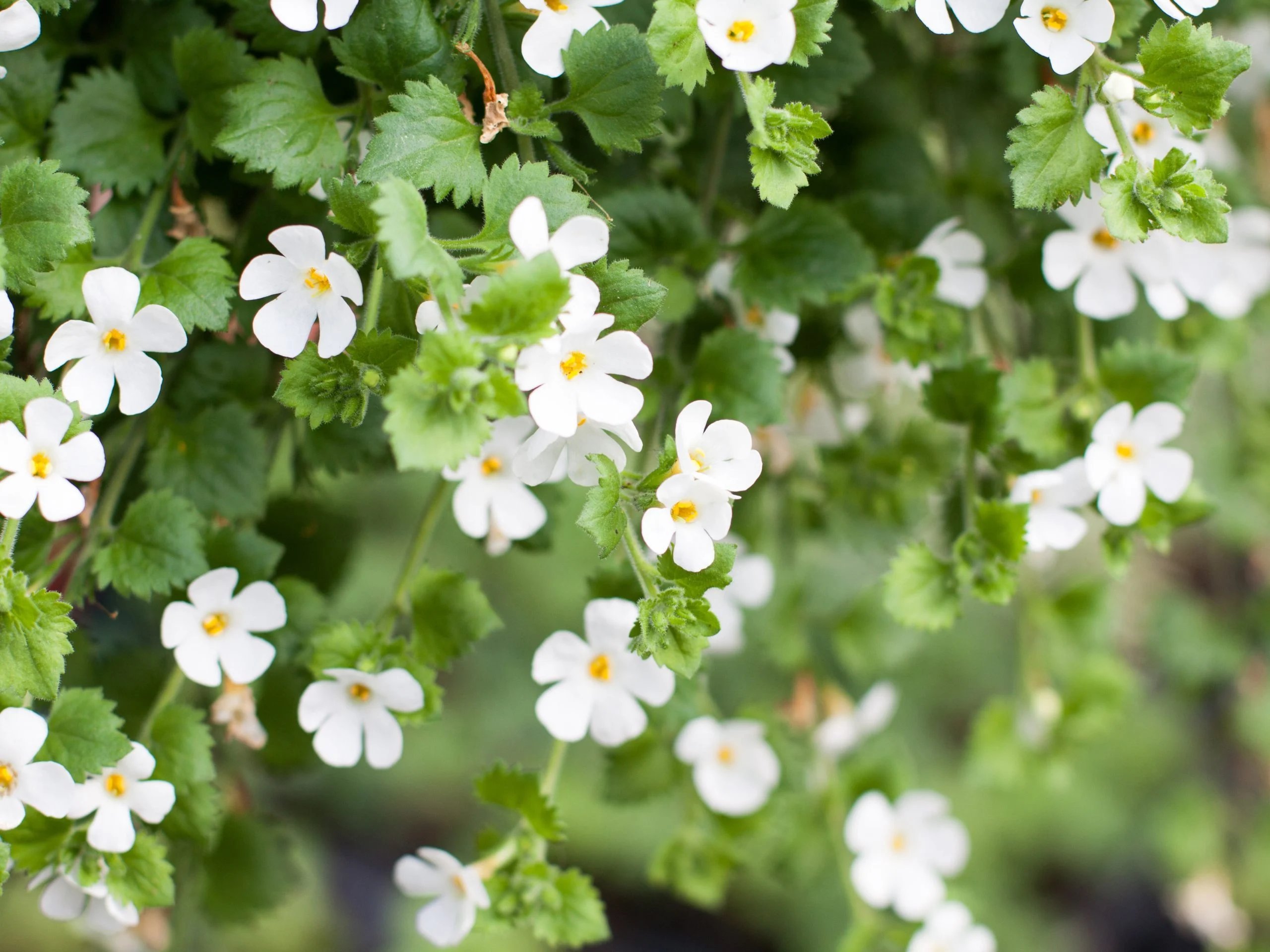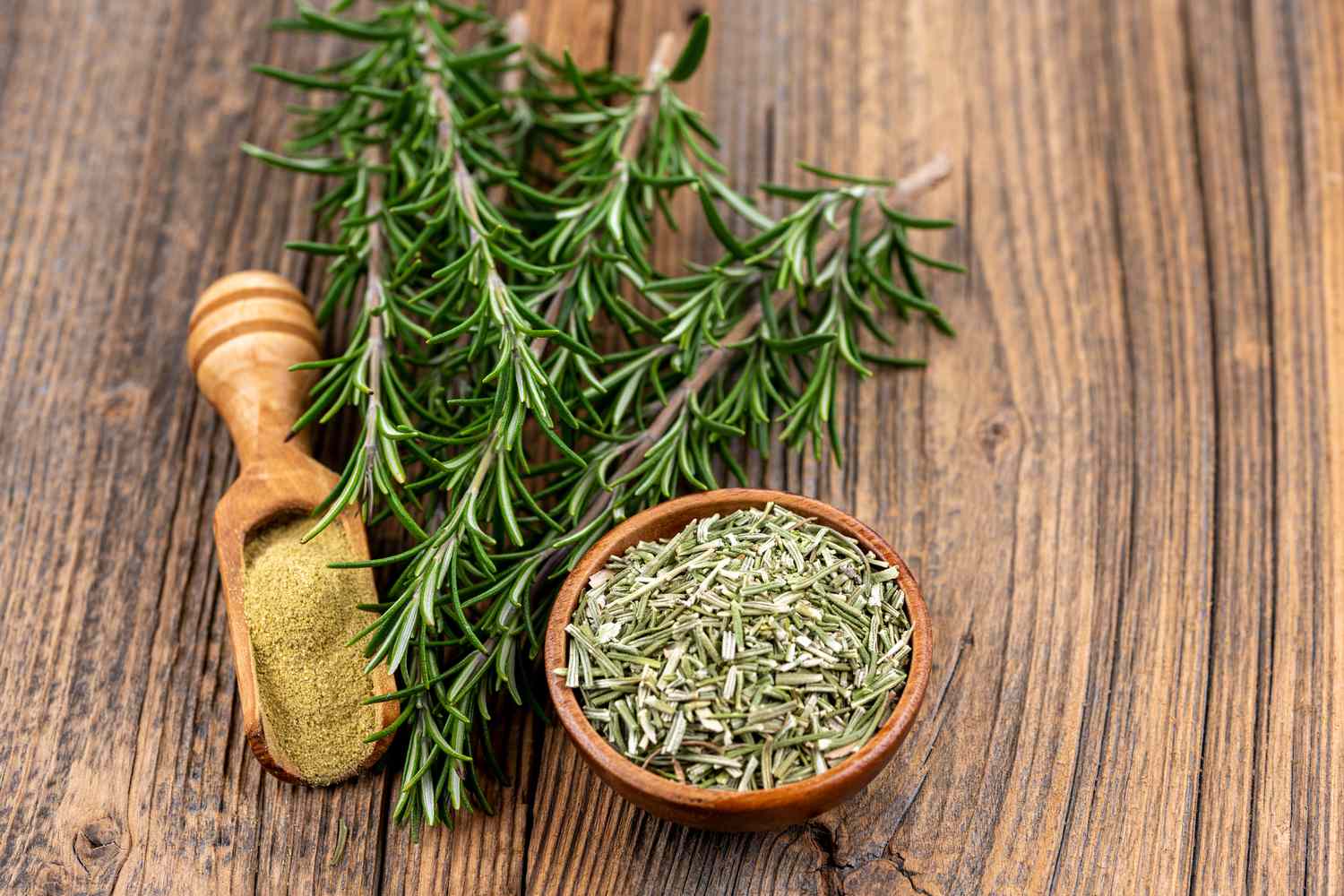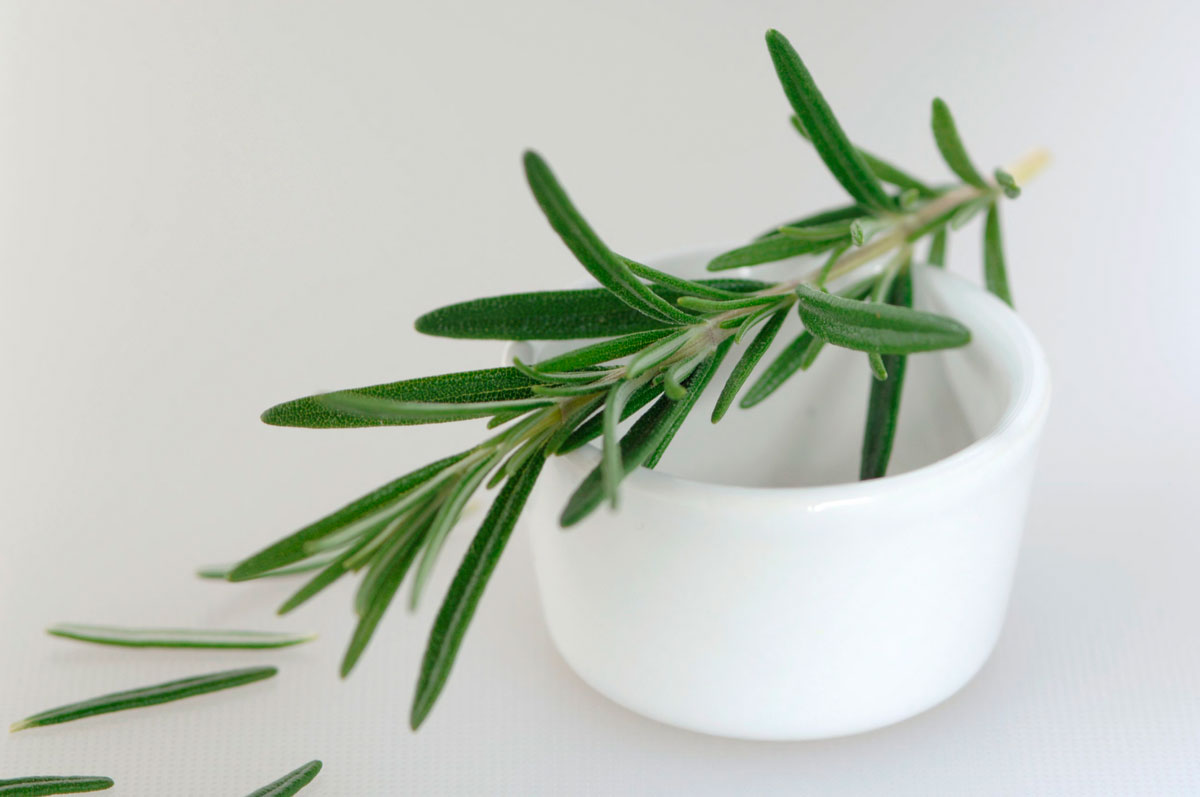Home>Types of Gardening>Edible Gardening>How To Use Rosemary For Memory


Edible Gardening
How To Use Rosemary For Memory
Published: January 30, 2024
Learn how to incorporate rosemary into your edible gardening routine to enhance memory and cognitive function. Discover the benefits of growing and using rosemary for improved mental clarity and focus.
(Many of the links in this article redirect to a specific reviewed product. Your purchase of these products through affiliate links helps to generate commission for Chicagolandgardening.com, at no extra cost. Learn more)
Table of Contents
Introduction
Introduction
Welcome to the fascinating world of rosemary, a beloved herb that has been cherished for centuries for its culinary, medicinal, and aromatic properties. In this article, we will delve into the captivating connection between rosemary and memory, exploring the potential benefits of this herb in enhancing cognitive function.
Rosemary, with its fragrant, needle-like leaves and delicate blue flowers, has long been revered for its versatility and remarkable health-promoting properties. Beyond its traditional culinary applications, rosemary has been celebrated in folklore and ancient medicine for its purported ability to stimulate memory and concentration.
As we embark on this exploration, we will uncover the rich history and cultural significance of rosemary, shedding light on its symbolic value and the profound impact it has had on various civilizations throughout history. Moreover, we will examine the scientific research that underpins the age-old belief in rosemary's memory-boosting prowess, offering valuable insights into the mechanisms that may contribute to its cognitive benefits.
Join us on this enlightening journey as we unravel the mysteries and marvels of rosemary, discovering how this humble herb has the potential to invigorate not only our culinary creations but also our cognitive faculties. Through a blend of ancient wisdom and modern scientific inquiry, we aim to provide a comprehensive understanding of the captivating relationship between rosemary and memory.
What is Rosemary?
What is Rosemary?
Rosemary, scientifically known as Rosmarinus officinalis, is an aromatic evergreen herb native to the Mediterranean region, where it thrives in the warm, sunny climate. Belonging to the mint family, Lamiaceae, this perennial herb is characterized by its needle-like leaves, which exude a distinctive pine-like fragrance, and its petite, pale blue flowers that adorn the plant in the spring and summer months.
With a rich history dating back to ancient civilizations, rosemary has been revered for its multifaceted utility, serving as a culinary staple, a source of traditional medicine, and a symbol of remembrance and fidelity in various cultural traditions. The name “rosemary” is derived from the Latin words “ros” (dew) and “marinus” (sea), reflecting its preference for the coastal climates of its native habitat.
Renowned for its robust flavor, rosemary has been an indispensable ingredient in Mediterranean cuisine for centuries, adding depth and aromatic complexity to an array of dishes, including roasted meats, savory stews, and hearty breads. Its assertive, piney aroma and slightly bitter, peppery taste make it a beloved seasoning in culinary traditions spanning the globe.
Beyond its culinary allure, rosemary has been treasured for its potential health benefits, with historical references to its use in traditional medicine for addressing various ailments, including digestive discomfort and respiratory issues. Its association with memory enhancement and cognitive support has also been a recurring theme throughout history, earning it a place in folklore and ancient healing practices.
As we unravel the essence of rosemary, it becomes evident that this resilient herb embodies a rich tapestry of cultural significance, culinary appeal, and potential wellness-promoting properties. Its enduring presence in human history underscores its enduring allure and its capacity to captivate the senses while offering a myriad of potential benefits for both body and mind.
Rosemary and Memory
Rosemary and Memory
The intriguing association between rosemary and memory has been a subject of fascination for centuries, transcending cultural and geographical boundaries. Revered for its purported ability to enhance cognitive function and stimulate mental acuity, rosemary has woven itself into the fabric of folklore, ancient traditions, and modern scientific inquiry.
Throughout history, rosemary has been emblematic of memory and remembrance, symbolizing fidelity, love, and longevity in diverse cultures. In ancient Greece, students would often wear garlands of rosemary during examinations to invigorate their memory and concentration. Similarly, in Shakespearean literature, rosemary was frequently referenced as a symbol of remembrance, emphasizing its enduring association with memory enhancement.
The aromatic compounds found in rosemary, particularly rosmarinic acid and ursolic acid, have garnered attention for their potential cognitive benefits. Research suggests that these bioactive constituents may exert neuroprotective effects and modulate neurotransmitter activity, potentially influencing memory and learning processes.
Furthermore, the invigorating scent of rosemary essential oil has been linked to improved cognitive performance and mood enhancement. Inhalation of the herb’s fragrant essence is believed to stimulate mental clarity and sharpen concentration, offering a sensory experience that transcends its culinary and aromatic appeal.
Modern scientific studies have explored the cognitive effects of rosemary, yielding compelling findings that support its traditional reputation as a memory aid. Research published in the International Journal of Neuroscience has indicated that the inhalation of rosemary essential oil may enhance cognitive performance and subjective alertness, underscoring its potential as a natural cognitive enhancer.
As we delve into the captivating realm of rosemary and memory, it becomes evident that this revered herb possesses a profound allure that extends beyond its culinary utility. Whether steeped in ancient symbolism or scrutinized through the lens of contemporary scientific inquiry, rosemary continues to captivate the imagination and beckon exploration into its potential as a guardian of cognitive vitality.
Ways to Use Rosemary for Memory
Ways to Use Rosemary for Memory
Embracing the aromatic allure and potential cognitive benefits of rosemary, there are several delightful and practical ways to incorporate this revered herb into your daily routine to support cognitive vitality and memory function.
-
Culinary Infusion: Infusing your culinary creations with the robust flavor of rosemary can be a delectable way to harness its potential cognitive benefits. Whether incorporated into savory dishes such as roasted vegetables, grilled meats, or homemade bread, or infused into herbal teas and refreshing beverages, rosemary can impart its distinctive essence while offering a sensory indulgence that tantalizes the taste buds.
-
Aromatic Ambiance: Utilizing rosemary essential oil in aromatherapy practices can create an invigorating ambiance that may promote mental clarity and focus. Diffusing the fragrant essence of rosemary oil in your living or work space can provide a refreshing olfactory experience, potentially enhancing cognitive performance and imbuing the environment with an uplifting, herbaceous aroma.
-
Herbal Infusions: Crafting herbal infusions or tisanes with dried rosemary leaves can offer a soothing and aromatic beverage that may contribute to cognitive well-being. Steeping a few sprigs of rosemary in hot water to create an herbal infusion provides a delightful way to savor the herb’s essence while potentially reaping its purported memory-supporting benefits.
-
Culinary Seasoning: Elevating your culinary repertoire with the vibrant flavor of fresh or dried rosemary can infuse your meals with a tantalizing depth of taste while potentially supporting cognitive vitality. Whether added to marinades, salad dressings, or infused into oils and vinegars, the aromatic presence of rosemary can enliven your culinary creations while offering a potential cognitive boost.
-
Botanical Crafts: Engaging in botanical crafts such as creating fragrant sachets or herbal wreaths with dried rosemary can infuse your living spaces with its captivating aroma, potentially contributing to a sensory environment that promotes mental alertness and well-being. Crafting botanical creations with rosemary allows you to appreciate its aromatic charm while potentially enhancing the ambiance of your surroundings.
By integrating these creative and practical approaches, you can savor the multifaceted allure of rosemary while exploring its potential as a natural ally for cognitive vitality and memory support. Whether savored in culinary delights, aromatic infusions, or botanical crafts, the essence of rosemary invites you to embrace its sensory splendor while nurturing cognitive well-being.
Precautions and Side Effects
Precautions and Side Effects
While rosemary is celebrated for its culinary appeal and potential cognitive benefits, it is important to exercise caution and be mindful of potential precautions and side effects associated with its consumption and use.
Essential Oil Caution: When using rosemary essential oil for aromatherapy or topical applications, it is essential to dilute it properly to avoid skin irritation or sensitization. Direct skin contact with undiluted essential oil may lead to adverse reactions in some individuals, so it is advisable to perform a patch test and adhere to proper dilution guidelines.
Medical Considerations: Individuals with certain medical conditions, such as epilepsy or hypertension, should exercise caution when using rosemary, particularly in concentrated forms such as essential oil or high-potency supplements. Consulting with a healthcare professional is advisable to ensure that the use of rosemary does not interfere with existing medical treatments or exacerbate underlying health concerns.
Pregnancy and Nursing: Pregnant and nursing individuals should approach the use of rosemary with caution, particularly in concentrated forms, as its effects during pregnancy and lactation have not been comprehensively studied. It is prudent to seek guidance from a qualified healthcare provider before using rosemary products during these critical life stages.
Allergic Reactions: While relatively rare, allergic reactions to rosemary, particularly in sensitive individuals, may manifest as skin irritation, respiratory discomfort, or digestive disturbances. If you have known sensitivities to plants in the Lamiaceae family, including mint, basil, or oregano, exercising caution when using rosemary is advisable.
Drug Interactions: Rosemary supplements or concentrated forms of the herb, such as essential oil, may interact with certain medications, including blood thinners, anticoagulants, and medications metabolized by the liver. It is essential to consult with a healthcare professional, particularly a pharmacist or medical doctor, to assess potential interactions and avoid adverse effects.
By remaining mindful of these precautions and potential side effects, individuals can prudently navigate the use of rosemary to support cognitive well-being and culinary enjoyment while minimizing the risk of adverse reactions or interactions. Prioritizing informed and cautious usage allows individuals to savor the benefits of rosemary while safeguarding their overall health and well-being.
Conclusion
Conclusion
As we journey through the captivating realm of rosemary and its intriguing relationship with memory, we uncover a tapestry of tradition, science, and sensory allure that beckons exploration and appreciation. From its ancient symbolism as a guardian of memory to its modern-day recognition for potential cognitive benefits, rosemary continues to enchant and inspire, offering a multifaceted essence that transcends culinary and aromatic realms.
The rich history and cultural significance of rosemary, intertwined with its enduring association with memory enhancement, reflect its timeless appeal and enduring relevance in human experience. Whether adorning culinary creations with its robust flavor, infusing living spaces with its invigorating aroma, or crafting botanical treasures with its verdant charm, rosemary invites us to savor its sensory splendor while potentially nurturing cognitive vitality.
While embracing the potential benefits of rosemary for memory and cognitive function, it is essential to approach its usage with mindfulness and consideration for potential precautions and side effects. By exercising prudence and seeking guidance when necessary, individuals can savor the multifaceted allure of rosemary while safeguarding their well-being and enjoying its sensory and potential cognitive benefits.
As we partake in the timeless tradition of infusing our lives with the essence of rosemary, we honor its legacy as a symbol of remembrance, fidelity, and potential cognitive support. Whether through a fragrant culinary creation, an aromatic infusion, or a botanical craft, the essence of rosemary weaves itself into the fabric of our experiences, inviting us to appreciate its sensory allure and potential contributions to cognitive well-being.
May the spirit of rosemary continue to captivate our senses, inspire our culinary endeavors, and kindle our appreciation for the profound interplay between tradition, science, and the enduring allure of botanical treasures.
